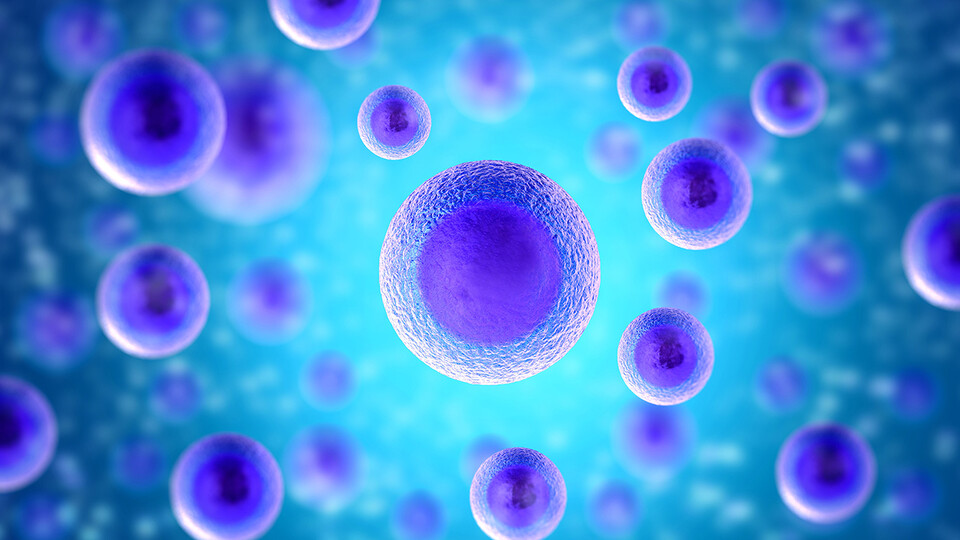Mechanical and Materials Engineering
Karl Vogel, January 27, 2021
Engineers putting charge into delivery of disease-fighting drugs
By applying electric charges to cell surfaces, two University of Nebraska–Lincoln engineers are working to improve drug delivery systems that could help fight cancer, heart disease and neurodegenerative diseases.
Jae Sung Park and Ruiguo Yang, assistant professors of mechanical and materials engineering, have received a three-year, $387,356 grant from the National Science Foundation to apply electric charges to cells and study how those charges change the flows around pores in a cell’s surface.
“The cell surface is less than the width of a hair, and it has small pores, and the idea is to deliver the drug more effectively by applying electric charges to individual cells to open the pores wider,” Park said. “If we can deliver the drug through those small pores, it might help treat those diseases more efficiently and effectively.”
Placing a charge on one of those cells also changes the way fluids can flow into and around the pores. Park said the team is working to find ways of controlling and predicting those flows in a collective way — theoretically, numerically and experimentally.
Through scanning ion-conductance microscopy, a technique that effectively defines the surface topography of structures down to the nanoscale, the team will be able to better understand how those charges change the pores and how to control the charges and flows around them.
“Once we know that we can apply a certain size of electrical fields to create a certain size pore, we can certainly have a better drug delivery system,” Park said.
While the grant was received in August 2020, the project has been in development for nearly four years, since Park and Yang first began conversing as office neighbors back in 2017. Park said the team has already generated a good amount of data and is submitting papers for journal publications.
“When I came here in 2017, I was given the office next door to Dr. Yang,” Park said. “Since then, we’ve been hanging out and talking about life and research, and sometimes that pays off.
“We’re making very good, fast progress already, and some of that is because we’ve been thinking about this project and working on it for quite a while.”






